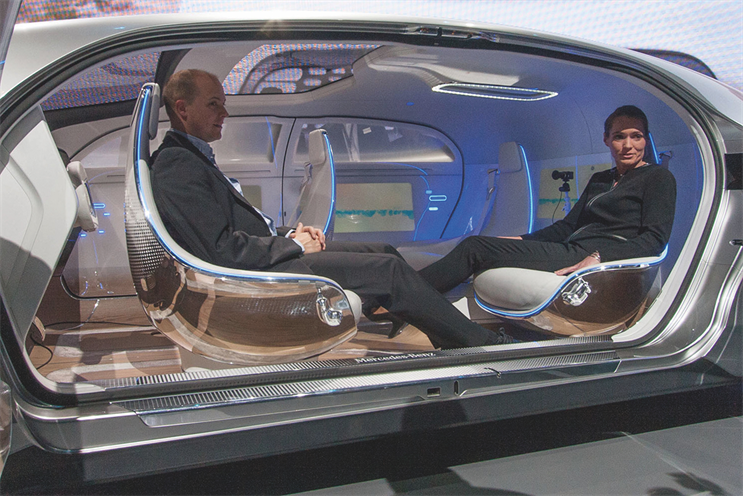
There are four major trends disrupting the automotive industry today: autonomous vehicles, electric vehicles, connected cars, and new shared-ownership models. Each are set to transform the way we think about transportation, and are converging in a way that means the pace of change is increasing.
But how can this pace continue when a car on the road is, on average, nine years old, and lacks the fundamental technology to make it intelligent?
While replacing a vehicle is a costly exercise, a smartphone can turn it into connected car simply by running navigation apps such as Waze, Google Maps or Apple Maps with the phone safely mounted to the dashboard. With 17 software updates a year, an app like Waze improves every three weeks, which helps keep drivers in touch with the latest in navigation, even if the tech in their car is running on the equivalent of iOS 3.
It's fantastic to track uplift in dealership visits against Waze advertising, as we are traditionally reliant on dealers' data
Integrate and innovate
Car manufacturers are increasingly seeing the value of giving their vehicles smart capabilities, powered by technology companies. Volvo CEO, Håkan Samuelsson, recently said the organisation is focused on building "very attractive cars with the best services to accompany them", but without the expertise to compete on areas like machine learning, is turning to the likes of Uber and Android Auto to provide the digital experiences drivers need.
A great example of this is Ford, who is working hard to provide seamless experiences linking the apps you know and love from your phone on to the main screen in your car. The manufacturer’s SYNC 3 infotainment system brings consumers their favourite apps to the screens of its newest models, including the likes of Spotify, Waze and RadioPlayer.
Drivers can engage with these apps with voice commands, for example, reporting an accident or traffic by simply saying "OK, Waze…", removing the need to touch the screen and ensuring a safe drive.
Integrating app technology into a car is a huge step forward for the automotive industry, but it does not stop there. Automotive brands are beginning to tap into the commercial opportunity of being contextually relevant to drivers while they’re out on the road. With the average Waze user spending 92 minutes in the car per day, ‘Wazers’ are typically heavy-use motorists and care about the car they’re commuting in.
Looking to bridge the gap between out-of home advertising and mobile, brands such as Suzuki, Vauxhall, and Ford have all been using in-app placements to communicate branded messages, promote models and highlight dealer offers.
Suzuki, in conjunction with the7Stars, started promoting their ‘Suzuki Saturdays’ event on Waze, showcasing dealerships and building a steady stream of awareness for the event ahead of time.
Tammy Charnley, general marketing manager, Suzuki GB, mentioned mobile has proven to be a key channel for driving footfall to dealerships: "It’s fantastic to track uplift in dealership visits against Waze advertising, as we are traditionally reliant on dealers’ data".
At Waze, we are also looking beyond navigation to provide drivers with greater peace of mind while they’re on the road. The Waze community was born out of an idea that we can all have better commutes if we work together, and our new Roadside Help feature allows drivers to request help from other Wazers if they’ve broken down. We see thousands of requests every month for users who have run out of fuel or have a flat battery, and other members of the Waze community have stepped in to help out.
However, since cars sometimes have larger complications where an expert is required, we have also partnered with breakdown and recovery firms across the world who are displayed prominently within the Roadside Help section of Waze. These partners have agreed to help recover any driver who has broken down without the need for a long term contract, and we simply send them red hot leads of people who need immediate help.
We have a long way to go before all cars are autonomous or connected (or even electric), but by working together, tech companies and automotive brands can help make this a universal reality more quickly. Whether by integrating operating systems into a dashboard, partnering on in-app placements or roadside help, or simply by giving drivers a place to dock their phones, the benefits are evident.
Entrepreneur and co-author of Mosaic, Marc Andreessen, once said: "Right now the phone is an accessory to the car, but soon the car is going to be an accessory to the phone", and this has never been closer to becoming a reality.

